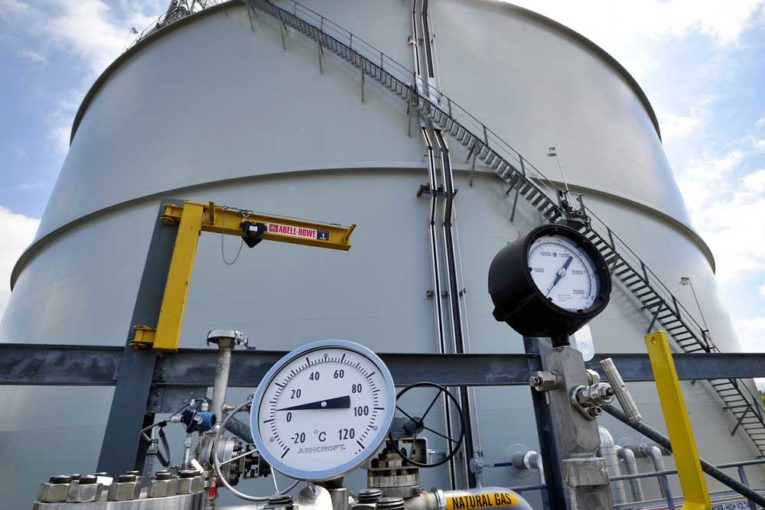
CALGARY — As many international companies pull out of British Columbia’s nascent LNG industry, a domestic pipeline company is considering jumping into the sector.
“We’re looking at a bunch of locations in B.C.,” Calgary-based Pembina Pipeline Corp. president and CEO Mick Dilger said during an earnings call Friday.
“As we push to get our products to better markets, we’re looking at everything,” Dilger said, adding that pursuing an LNG project in British Columbia would be a “long-term process.”
“These are mid- to end-of-decade projects that we’re looking at and we’re laying the groundwork now because it just takes that long,” he said.
Asked by analysts about the risks of pipeline blockades such as the protests that have stalled competitor TC Energy Corp.’s $6.6-billion Coastal GasLink project, Dilger said the company is now adding a new risk assessment of potential government changes and political disruptions to its process for evaluating new projects. “We added that uncertainty into our investment criteria,” he said.
Pembina’s potential entrance comes as multiple international players have abandoned projects on the West Coast, including CNOOC Ltd. shelving its Aurora LNG project and Exxon Mobil Corp. withdrawing from its West Coast Canada LNG project.
Last year, Chevron Corp. and Australia’s Woodside Petroleum Ltd. both announced they were looking to sell down their interests in the Kitimat LNG project. San Ramon, California-based Chevron took a writedown on the project and announced it was refocusing its spending away from Canadian holdings.
To date, construction has begun on only one major LNG export project in British Columbia – the $40-billion LNG Canada project led by Royal Dutch Shell plc, which will be serviced by the Coastal GasLink pipeline project.
Pembina is not currently an LNG exporter, though it is building a liquefied petroleum gas (LPG) export project near Prince Rupert, B.C. to export propane to Asia. The company’s main business is in transporting and processing natural gas and liquids-rich gas in Western Canada.
Other producers are also looking to enter the LNG market. As many as 10 domestic natural gas producers headquartered in Calgary have formed a consortium called Rockies LNG Partners in an attempt to drive their own project toward an FID in the next few years.
Rockies LNG president Greg Kist told the Financial Post earlier this week the company was working with partners, including a potential “project sponsor” that would build a multi-billion-dollar export facility on the West Coast to be operational by 2027. Kist declined to provide details about the partner or what sites the consortium was considering in B.C.
Similarly, Pembina’s Dilger didn’t answer questions from analysts Friday about whether the company was looking to invest in an existing project or develop a new project.
Pembina has also been advancing a liquefied natural gas export project on the Oregon coast called Jordan Cove LNG but that project has now been delayed twice after unfavourable decisions from the U.S. Federal Energy Regulatory Commission. Last week, the FERC voted 2-1 to delay a decision on Jordan Cove LNG.
“We’re going to stick with it because the cost to stick with it is nominal and it has huge upside,” Dilger said. The company, which had previously hoped to reach a final investment decision on the project last year, noted the next FERC meeting would be held at the end of March and it is working with Oregon state agencies to advance the project.
AltaCorp Capital analyst Nate Heywood said in a research note Friday that an investment decision on Jordan Cove LNG in the near future is “unlikely” though a favourable outcome from the FERC “would be a material milestone towards development.”
“Several headwinds remain for the project, including receipt of major permits and regulatory approvals,” Heywood said.
• Email: [email protected] | Twitter: geoffreymorgan
You can read more of the news on source
